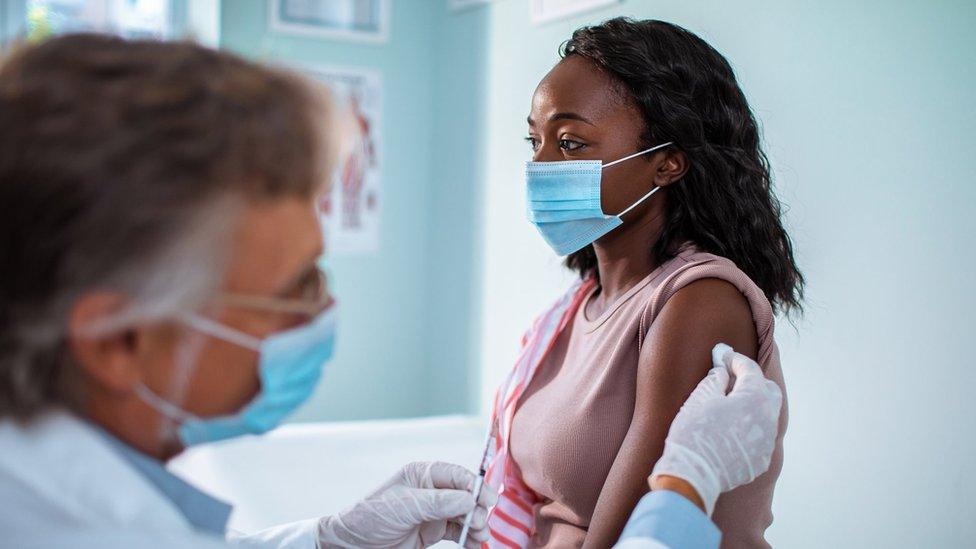Age not job prioritised in second phase of Covid jab rollout
- Published
- comments
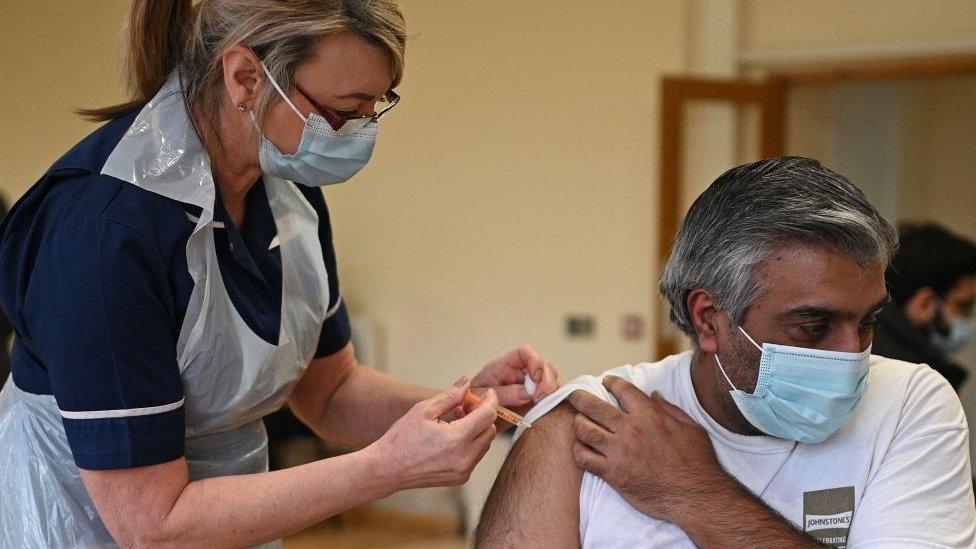
Vaccinating people in order of age is the fastest way to cut Covid-19 deaths in the next phase of the rollout, say experts advising the UK government.
People in their 40s will be next, once the current phase is completed.
Priority based on jobs would be "more complex" and could slow down the programme, the Joint Committee on Vaccination and Immunisation said.
Unions representing teachers and police have criticised the decision, saying it could disrupt children's education.
Teachers and police officers are among those who have campaigned to be prioritised in the next phase - but they will now be vaccinated in line with their age group.
All four nations of the UK will follow the committee's advice with a target of vaccinating all adults by end of July.
More than 19 million people in the UK have received a first dose so far.
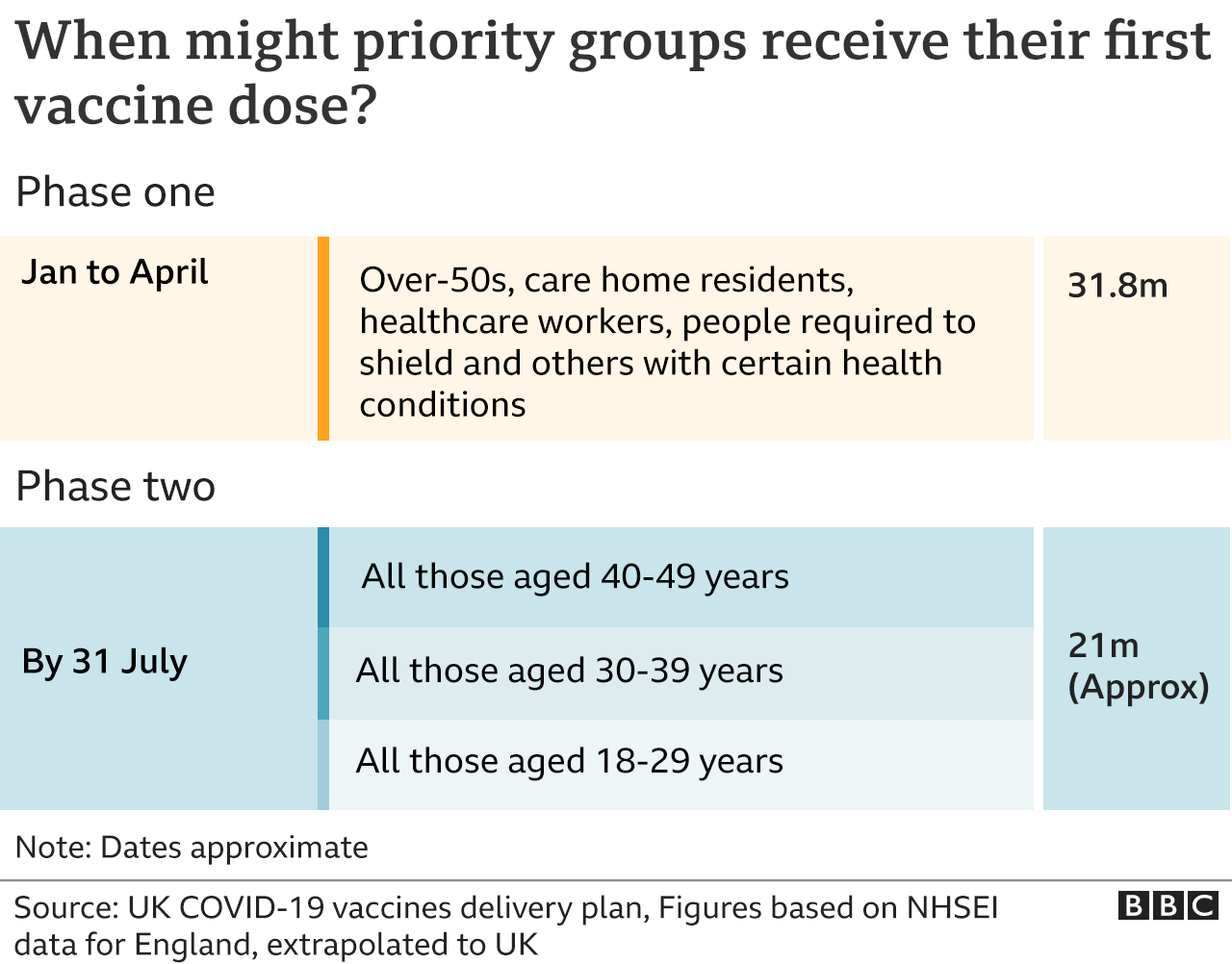
The Joint Committee on Vaccination and Immunisation (JCVI), which has looked at evidence on best how to reduce serious illness and death from Covid-19 in phase two of the UK's vaccination programme, says prioritising certain jobs could leave some vulnerable people waiting longer for a first dose.
The JCVI says the following groups should be prioritised, once all at-risk groups in phase one have been offered at least one dose of the vaccine (by mid-April):
all those aged 40-49 years
all those aged 30-39 years
all those aged 18-29 years
And it strongly advises some particular groups to take up a vaccine as soon as it is offered. They are:
men
people from black, Asian and minority ethnic communities
people with a BMI over 30
people living in poorer neighbourhoods
After phase one is complete by mid-April, in what order will all other adults get the jab?
In phase one, nine priority groups were set out based on age and underlying health conditions - the biggest factors in raising someone's risk. Health and care workers were also included to protect the vulnerable people they look after.
Vaccinating these groups should protect around 99% of those most at risk of dying from Covid-19.
All of those in the top four priority groups - around 15 million - were offered a jab by mid-February. More than 95% of the over-70s have now been vaccinated.
'Disappointed'
Prof Wei Shen Lim, Covid-19 chair of the JCVI, said occupation was not well-recorded in GPs' records and the effort required to identify people by their jobs "may slow down the whole programme".
"Speed of deployment is the most important factor," he said, adding that a straightforward approach was better.
Mary Ramsay, from Public Health England (PHE), said even within occupation groups, age was the major factor for risk from Covid-19.
"We would want a 40-year-old policeman to come forward before a 20-year old," she said.
Among the under 50s, data from hospitals shows men and women in their 40s are most likely to end up in intensive care with Covid-19.

But Geoff Barton, general secretary of the Association of School and College Leaders (ASCL), said he was disappointed that education staff would not be prioritised in the next phase.
"This is important not only in reassuring staff who it expects to work in busy and crowded environments, but also in terms of minimising disruption to education caused by staff absence as a result of Covid."
Dr Patrick Roach, general secretary of the teachers' union NASUWT, agreed saying the government was "failing to take all steps possible" to ensure schools remain open "without the risk of further closures or of further damaging disruption to children's education".
Metropolitan Police Federation chairman Ken Marsh criticised the plans to prioritise by age group, saying "it's absolutely disgusting - they don't give a damn about us".
The charity Asthma UK and the British Lung Foundation said thousands of people with asthma would "rightly feel anxious, angry and ignored by government". It has called on the government to reconsider its "unacceptable" decision not to prioritise everyone with the condition.
Protecting quickly
Three million people in the UK are being vaccinated every week in the UK with either a Pfizer-BioNTech or Oxford-AstraZeneca vaccine.
Early research suggests the vaccines are having a significant impact on preventing serious illness from Covid-19 in the UK. There is also some indication they could be reducing transmission of the virus between people.
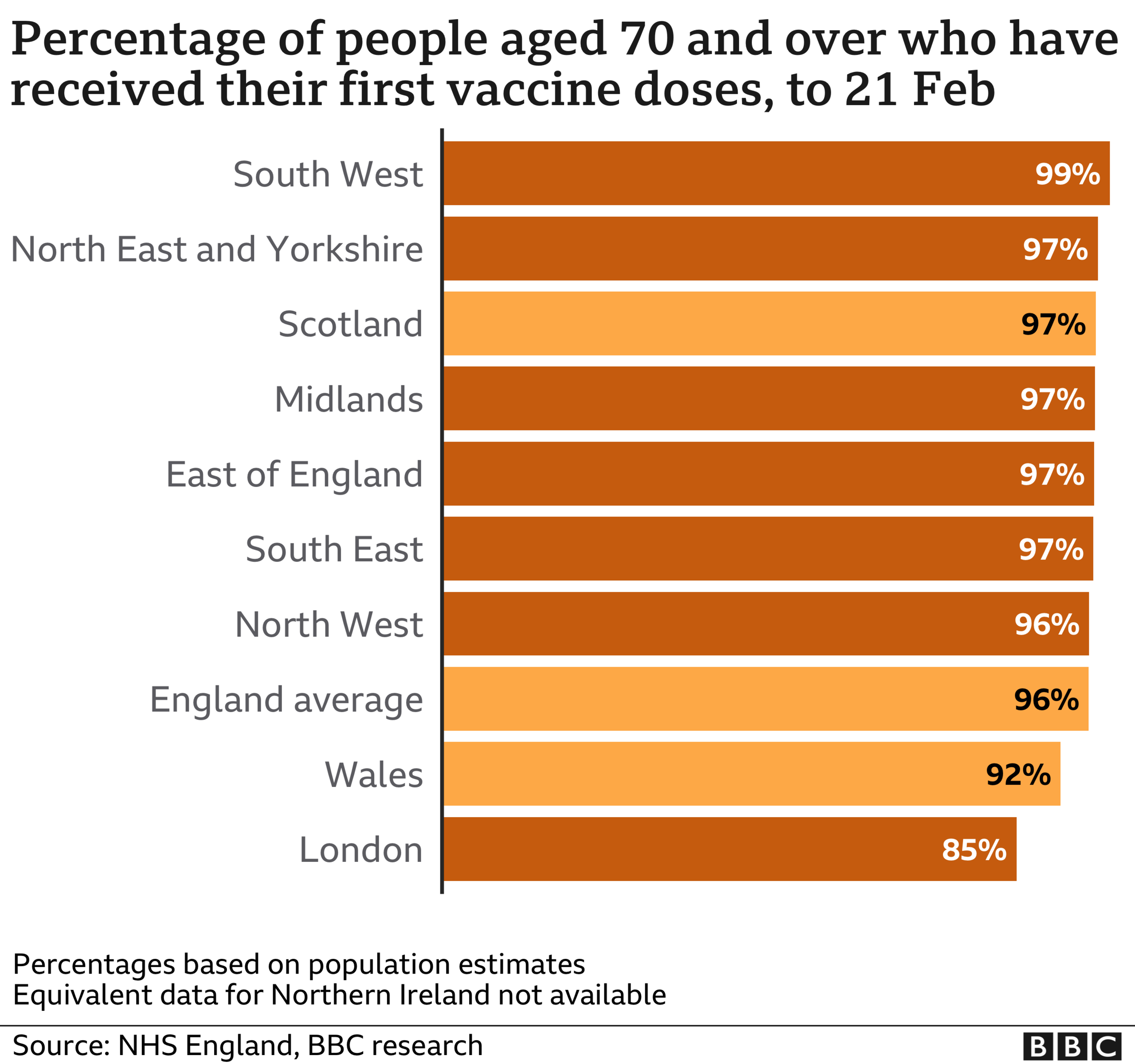
After a sharp rise in cases and deaths in January, levels of coronavirus are now decreasing across the UK although the pressure on hospitals is still high. The R number is currently between 0.6 and 0.9.
There were another 345 UK deaths reported on Friday within 28 days of a positive coronavirus test.
But there is concern that take-up of the vaccine is lower among some ethnic minority groups and people who live in poorer neighbourhoods.
PHE's Mary Ramsay said different communities had different concerns, and health officials were working hard to get people "on board" so they could protect themselves as well as their communities.
The JCVI said the priority groups for the vaccine were based on who was most likely to be severely ill or die from Covid-19 - not on who was most likely to become infected.
But when both exposure to the virus and personal vulnerability were taken into account, older people were still more at risk than younger people.
"By targeting older people fast, we will protect the largest number in the shortest time," Prof Wei Shen Lim said.
Related topics
- Published26 February 2021
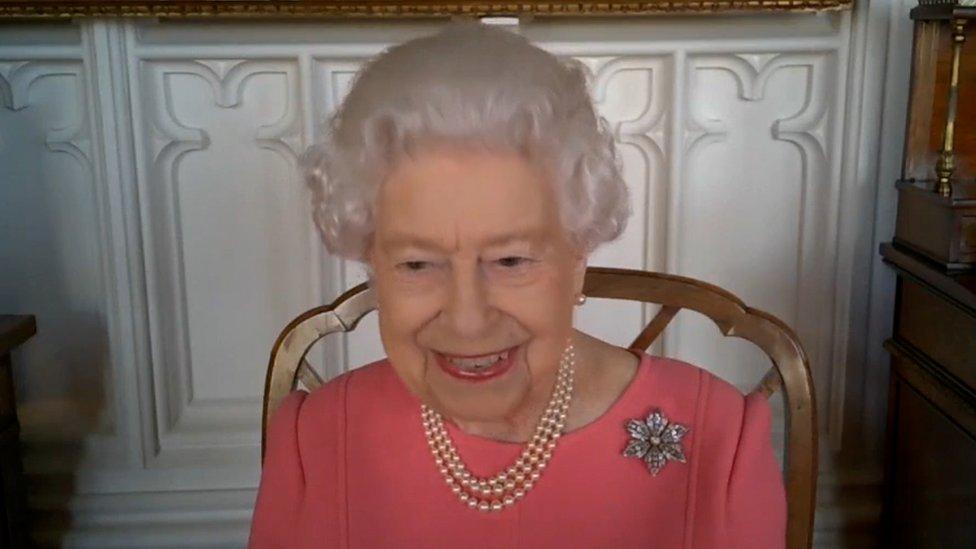
- Published28 February 2022

- Published22 February 2021

- Published5 February 2021
